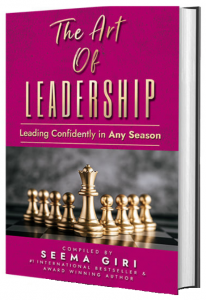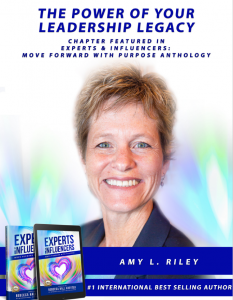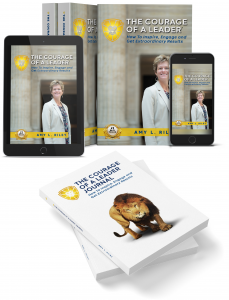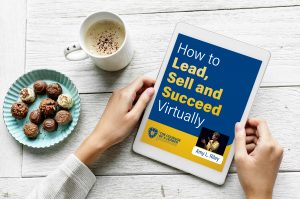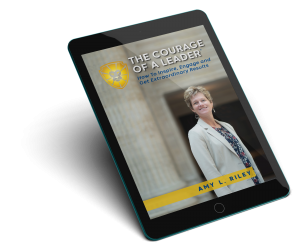Brent Kedzierski is my guest today and we dug into the How-To of getting more strategic and leading big complex changes. I’m excited to share this episode with you. If you are making plans and leading change in your organization, you’ll get great value from my conversation with Brent.
About the Guest:
Brent Kedzierski, Chief Learning Officer at Human WRKS, is a dynamic and sought-after keynoter, author, and thought leader. He has been featured and cited in prominent publications, including Harvard Business Weekly, Chief Learning Officer, BBC News and more. As former Head of Learning Strategy and Innovation at Shell, Brent drove Shell’s aspiration to be a world-leading learning organization. Over his career Brent led many of Shell’s most critical global transformation initiatives of the 21st century. Initiatives that collectively positioned Shell as a recognized leader in strategic human resource management.
Brent is now focusing on serving as an industry thought leader and advocate to promote Industry 5.0 as a vehicle to creating a more inclusive and human-centered future across industry. Brent’s is now working with progressive companies to improve the human condition at work by advancing the job performance experience for workers. Brent is changing the human condition at work – one experience at a time.
https://www.linkedin.com/in/brentkedzierski/
About the Host:
Amy L. Riley is an internationally renowned speaker, author and consultant. She has over 2 decades of experience developing leaders at all levels. Her clients include Cisco Systems, Deloitte and Barclays.
As a trusted leadership coach and consultant, Amy has worked with hundreds of leaders one-on-one, and thousands more as part of a group, to fully step into their leadership, create amazing teams and achieve extraordinary results.
Amy’s most popular keynote speeches are:
The Courage of a Leader: The Power of a Leadership Legacy
The Courage of a Leader: Create a Competitive Advantage with Sustainable, Results-Producing Cross-System Collaboration
The Courage of a Leader: Accelerate Trust with Your Team, Customers and Community
The Courage of a Leader: How to Lead, Sell and Succeed Virtually
Her new book is a #1 international best-seller and is entitled, The Courage of a Leader: How to Inspire, Engage and Get Extraordinary Results.
https://www.linkedin.com/in/amyshoopriley/
Links mentioned in the episode
https://www.bicmagazine.com/departments/hr/the-other-side-of-smart-advancing-the-human-machine-mix/
https://brentakedzierski.substack.com/p/three-hard-truths-about-work-in-2022
https://brentakedzierski.substack.com/p/hey-company-do-you-have-a-strong
Call to action
Get your free copy of Amy’s eBook, “How to Leader, Sell and Succeed Virtually” here: https://www.courageofaleader.com/ebook-how-to-lead-sell-and-succeed-virtually/
Thanks for listening!
Thanks so much for listening to The Courage of a Leader podcast! If you got inspired and/or got valuable leadership techniques you can use from this episode and think that others could benefit from listening, please share using the social media buttons on this page.
Do you have questions or feedback about this episode? Leave a comment in the section below!
Subscribe to the podcast
If you would like to get automatic updates of new The Courage of a Leader podcast episodes, you can subscribe to the podcast on Apple Podcasts or Stitcher. You can also subscribe in your favorite podcast app.
Leave us an Apple Podcasts review
Ratings and reviews from our listeners are extremely valuable to us and greatly appreciated. They help our podcast rank higher on Apple Podcasts, which helps us ignite The Courage of a Leader in more leaders! Please take a minute and leave an honest review on Apple Podcasts.
Transcript
Brent Kedzierski is my guest today and we dug into the how tos of getting more strategic, and leading big complex changes. I'm excited to share this episode with you. If you are making plans and leading change in your organization, you'll get great value from my conversation with Brent.
Amy Riley:Welcome to The Courage of a Leader podcast. This is where you hear real life stories of top leaders achieving extraordinary results. And you get practical advice and techniques, you can immediately apply for your own success. This is where you will get inspired. And take bold, courageous action. I am so glad you can join us. I'm your host, Amy Riley. Now, are you ready to step into the full power of your leadership and achieve the results you care about most? Let's ignite the courage of a leader.
Amy Riley:Read I want to ask you, you have made a shift what is most important to you right now.
Brent Kedzierski:he McKenzie principle back in:Amy Riley:I have with me today, Brent, consider ski. We have known each other for a couple of years I interviewed Brent for the courage of a leader book. I'm always impressed with what he has to share. He is a thought leader and an expert in large scale global transformation. Right is a dynamic and sought after keynoter and author. He has been featured in prominent publications including Harvard Business Weekly, chief learning officer and BBC News. As former head of learning strategy and innovation at Shell Brent led many of Shell's most critical global transformation initiatives and drove Shell's aspiration to be a world leading learning organization. Brent has recently shifted gears and is now working with progressive companies and focusing on serving as an advocate to promote industry five dot o as a vehicle to create a more inclusive and humored human centered future across industry. I am excited to have the podcast listeners learn from your experience. Brian, thank you for being here.
Brent Kedzierski:I mean, thanks for having me. It's great to be with you. And it's been great working with you over the last few years. And congratulations once again, on your book courage of a leader. I, I certainly enjoyed it. And I hear and continue to hear how well it's doing. So great for you, Amy.
Amy Riley:Ah, thank you, Brian, glad to have you included in the book. So let's look back at your experience over the past decades, having led global organization, why transformation initiatives? What are lessons that you've learned that you could offer to other leaders?
Brent Kedzierski:ve been doing my job here for:Brent Kedzierski:everyone wants, you know, it's always about someone wanting to control something are not being controlled. So it's, it's how do people feel they're going to lose control or be controlled? And that's what you have to look in the change model, you know, to basically house people or psychologically to look at
Amy Riley:that. Yes, okay. So Brent, I'm hearing lean on the data. I'm hearing expect antagonists, because you are leading them into the unknown. And there might be valid reasons why they're attached to the current, I'm also hearing, do not be afraid of the bumps, there could be exciting and necessary learning inside of the obstacles that come up.
Brent Kedzierski:Yeah, the bumps are, you know, that's where you learn, that's where you grow in the spots that aren't so comfortable. The spots that bring you to a new path, that's where you extend your own reality,
Amy Riley:you have such a focus on growth and progress. Well, and I think that those leaders who are not afraid of talking about and grappling with and dealing with the bumps, we respect them at all, they do see that there's an obstacle here, they are pulling us together to figure out the best way forward, the best way to handle this.
Brent Kedzierski:Right. And you and you got you need those kinds of leaders. I mean, I know that, you know, I was a very dynamic leader at Shell, and there was a healthy tension in everything I did. And some people love that tension. And some people thought, oh, it's overly aggressive, or, you know, whatever it be. But I'll tell you a funny story. I mean, one of the last meetings I was having, you know, I was in a group with a bunch of leaders the same level, and I was promoting that we do something that was a bit non status quo. And some of them started to give me the resistors and starting to say, Well, why how we couldn't do and why we wouldn't do it. And then I figured, well, you know, what I'm leaving showing a bit. So I don't want to have this, you know, done. If it can't get done without a dynamic leader, and then all of a sudden say, well, but you know, you might be right, let's not do it. Now. Let's put it on the table. And as soon as I said that, there, whoa, whoa, wait a minute, no, wait a minute. I mean, so some people just want that person to kind of assume the risk or, you know, lay it on and say, you know, I'll lead the charge. And you can you can say that you didn't agree. Or you can say you had some, you know, some doubts or something like that. As long as you've got someone that'll have the courage of a leader to say, I'll push it forward, I'm willing to accept the accountability, that I did push this and that I believed in it. And I believed in enough to put myself out there put myself at risk. And that's kind of what I always lived by. I thought that, you know, and still today, I do that, you know, nothing ever easy is, you know, good and nothing good is ever easy.
Amy Riley:Mm hmm. That is an interesting story, Brad. So maybe some of those antagonists out there are actually respecting and admiring the courage they're seeing from the leader. Taking the reins.
Brent Kedzierski:Yeah, that's one of the I'm sorry, that's one of the things that I would always do. I remember when I was changing the global competence management strategy at Shell. And now when you think about change, some of the hardest things to change in organizations are things that everybody has experience with. So everybody in the shell organization had experience with competence management, because it was done with most every employee, and they all had development discussions. They all had competence maps, they all experienced all of the elements of the process. So because they all experienced obviously, they all thought they were experts because they had their own intimate point of view and experience with those processes. So when I was trying to change the process, and using data and logic and a lot of other things, you know, reshape it. Everybody had their point of view, everybody had their opinion, everybody had experienced with good development discussions and bad development discussions. So I was going against a sea of an entire workforce that had a deep level of experience and bias and perspective. And that's when I really leaned in to listen to people to understand their experience, because I got some of my best insights. And my best energy for moving the path forward from my biggest resistance, those people that were adamant about their experience, and they had a full heart in the, you know, what they believed, and those people gave me the greatest insights that I use to fix the process.
Amy Riley:I love that. Because I think it can be easy for leaders who are driving a change, to focus on influencing the advocates, the people who are already on board, let's go where we've got support, and start the charge there and not go and seek out time with the resistors, the antagonists, and that's where you might learn what you need to learn to, to have the initiative ultimately be successful. Right?
Brent Kedzierski:he Pareto Principle, it's the:Amy Riley:forward progress, we'll stop. That's great. I really like that. Brent, you've recently made a shift, you are now the chief learning officer for human works. And you're promoting industry five dot O, and looking to create a more human centered workplace. Tell us how you define industry five dot O, and what do you see as the most exciting benefits?
Brent Kedzierski:model? So good question. So, you know, I've got over 30 years of experience in this field of human performance, organization development, change management, and basically people development. Then classically trained in from a university level, and I've got, I've been afforded to really have some great experience working with the military with industry, high risk industry, working in some great projects. And, and I really am proud and fortunate to the level of experience that I've been able to have. And then to top that off with 20 plus years in jail, working matrix global, complex environment has really been beneficial to me. I've seen a lot and I've been able to do a lot. And when I noticed is when we started doing a lot of the digital transformation in Shell. We were digitizing and we were really leaning in the digital I mean, we had a goal to get, you know, harvest $2 billion with a benefit from from digital. And we were, you know, looking to that automation of our plant to make the lights out to people as factories. And what I saw along the way is we sometimes were losing the human element about this. And then I started to study a little bit more on the industry. Five point on, I was deep into the pillars of industry 4.0, with the cyber physical connectivity and the elements that drive that. And what I saw in industry 5.0 was, you know, we're going to reach a peak where, you know, technology will only go so far with us, you know, once you get to artificial intelligence, and machine learning, and, you know, all these kinds of things, you've got to marry human intellect, human creativity, and human cooperative abilities, to really advance automation to the next level. But at the same notion, you have to use the automation to enable the people to Excel. So we need to use automation to make people more intellectual, you know, teach them how to be more digitally fluent, or be able to be more, you know, computational thinkers. And this is where this thing about power skills and super jobs come into play in industry 5.0, because the traditional hierarchical organization, because of connectivity, and just the complexity of a more personalized set of, you know, supply chains, product development cycles, all these kinds of things are going to create more complex organizations where you won't just be in your silo anymore. And that's going to mean people going to have to be much more collaborative across functional boundaries. So there's a whole lot of ideas and concepts like that, that we have to contend with. But my biggest thing was, you know, industry 5.0 is about what's the worker feels in terms of their individual role in industry? You know, are they working in meaningful jobs? Are those jobs, helping to create a better society, a better environment? Are those jobs helping to eliminate waste? Are those jobs helping to progress the world? You know, again, we look at things like 70 plus percent of the world doesn't have electricity, you know, clean water, and all these things. And I think industry five brings around the potential for organizations not to deliver commercial goods and industrial services, but do so in a way that benefits humanity and society. And I think that's the role of industry vide point, oh, is opening up the world, so that it can be a bit more humane. And again, I look at this, and I talked about this model, you know, if you have workers that go home, and they're aggravated, or they're discontent, they go home, and they're probably not the nicest to their husband, or wife or their children, they probably grumpy. And that doesn't help us build strong families. And then if the don't have strong families throughout our communities, that really doesn't build strong communities. And if you don't have strong communities, that really doesn't help to build a strong society. So I'm very passionate about the the role that work plays in society. And that's why I developed created the human works companies, because really, human works. And that's what I want industry to understand is that if we can be a little bit more human in our thinking around, you know, corporate enterprise, I think everybody's going to be better off
Amy Riley:for that. Excellent, appreciate your passion and your commitment, and understanding all of the ripple effects that happen if we are a person who feels like we have meaningful work, and that we can make an important contribution in our job, just how that impacts how we show up as a person in all areas of our lives. We can react to that, Brent? Well, I
Brent Kedzierski:was gonna say that, you know, one of the things I'm working on next is kind of a revisioning have the corporate learning function. You know, if you think about it's been very linear for many years, you know, there's some perceived training need and you fill it with some kind of either compliance based learning or some kind of PowerPoint based learning. But we're really not looking at what's enriching those employees because, you know, people's time and attention is so scarce now they're overwhelmed in the workplace there. shocked with content coming at them from multiple dimensions. And you know, they do have preferences. And they do have, you know, things that they would prefer how to learn or when to learn. And there's so much competing for their time and attention, that we want to be doing things that the employee feels are valuable to them that are meaningful, and that it's a good use of their time. Because you don't want them walking away from something and say, Gee, I just wish I had that hour back from what I had to do. And it just can't be checked the box kind of things. So we really need a more personalized and adaptive infrastructure for people to treat them more as individuals, just as big widgets in a wheel.
Amy Riley:Yeah. Yeah, a little bit. I want to ask a pandemic related question brand. Do you feel like the pandemic has heightened up our awareness? And like a primed the, the workplace for this need to focus on creating a you more human centric workplace? Or is it distracting us from man?
Brent Kedzierski:Yo, me, you, me, you've got it. I mean, you know, the pandemic is giving people time to pause to reflect on their lives, their family orientation. You know, what it means to be at home more often, you know, maybe see what their spouse does when they're at work all day, have a greater appreciation for that, maybe see the struggles of their children throughout the day with homework or friends or different things like that. And I think that they looked at life being finite. And they looked at it and saying, What am I doing with all my, you know, this is this really how I want to spend my time and toil and drudgery. And this is why you have the great resignation, you've got all of these new mental models that are coming out about how people want to spend their time and attention. And I think people are getting much more judicious about how, when and why they spend their time. And so I think that organizations have to respond to that by getting things more personalized for people so that the people's time is respected, and is made better use up?
Amy Riley:Yes. Yes, I think we're I think we're hungry for it. Ah, final question, Brent. For the leaders out there who see a possibility to make a change in their organization in their community? And how do they get started with that they want to do something big. It's overwhelming. They're trying to figure out how to get their heads in their hands around it. Where do they start?
Brent Kedzierski:Well, I think you have toy storage, you know, you're the biggest pain points for the employees. You know, I think a lot of organizations out there starting to see that they've got retention issues, they've got engagement issues, you know, and these are leading indicators, will actually probably lagging indicators of problems that they've got throughout their organization. You know, the idea of developing personas for workers was a couple years old now. We're looking at, you know, a day in the life of the employee, and what are the struggles that they deal with? And, you know, what are their pain points? And how do you remedy those? The organization countries are shifting, because really, what you want is more worker enablement. So I look at these environments secrete more worker enabled environment, with more control by the worker, of what they do, when they do it, how they do it, you know, this idea about being more concerned about the worker getting their work done, and then where they get it done things like that, or what time they get it done. As long as they're in control of getting it done to the, to the needs of the organization. So there are a lot of the things that I'm seeing about more autonomy for workers, these things like the citizen development of their own solutions, you know, for example, one of the things in shell that I thought was great, and we were really having great success with was this Microsoft Power BI apps, where workers could actually, you know, address the problems that they see in their workflow with technology that they could do themselves. So he didn't have to send it up to the white ivory tower and have some, you know, big five consulting firm come in and you know, build some solution and, you know, a year later give it to the workers and they look at and say Whoo, did this and why should I use it? You know, so it's really about, it's really about that it's giving them relevance, it's giving them autonomy, it's giving them greater control, and it's giving them the resources that they need. So, you know, there's a lot more deeper things to that. But it's, it's a function of making the work meaningful, giving them the right tools and support, giving them a psychologically safe environment. You know, it's, you know, we have these tensions in organizations where, you know, we say, we want to be innovative, we want to do this, and, but the first time somebody kind of makes a mistake, you know, they're fearful, you know, or, you know, they you say, we want to be a learner mindset company. But as soon as they ask a question, where admit, they don't know something, while they're in the back row, then all of a sudden, really, so, you know, we've got us walk the talk in terms of what we really want, and leaders have to leave the right way. And when they see their culture, doing things to employees, they can't succumb to that culture, because they're also fearful. And I think that's the biggest thing that people forget, as leaders are fearful to, and maybe, maybe even more so because they're closer to the sun, you know, so they even get more heat. So, you know, they're the ones that don't want to say the wrong thing and don't want to take a risk and, you know, kind of want to hide from any kind of tension or dilemma or you no struggle, and they just want to keep the wheels on the bus going round and round.
Amy Riley:Yes, brand, exactly. This is why I am passionate about supporting leaders, right, because they feel so much of it on top of their shoulders. Brent, you've shared so much great value with us in a short period of time. Right now I'm trying to think about how to summarize my key takeaways, a clearly heard, let's not be afraid of our resistors, let's not be afraid of our obstacles, in fact, lean in there. That's where we want to spend time and energy. I also love be really clear about the vision where you're headed, big picture, but also having those next step those near term actions that people can take and get involved with, really making sure you're giving the employees the tools and the support to get involved. So what's next for you, Brent? Well,
Brent Kedzierski:sking. As I look at workforce:Amy Riley:Yeah, absolutely. In the show notes, you will find links to three thought provoking articles that Brett has written recently. So please check them out. Because I think Brent is exactly right. We're at a tipping point here. Thank you, Brent, for spending time with us on the courage of a leader podcast. Appreciate all of the great insights that you've shared from your experience over the past decades.
Brent Kedzierski:But thanks, Amy, it's great to talk to you and spend this time with you. And I'm looking for more connections with you as we progress through this little journey of life.
Amy Riley:Me too Brent. Thank you. Thanks, everyone for listening.

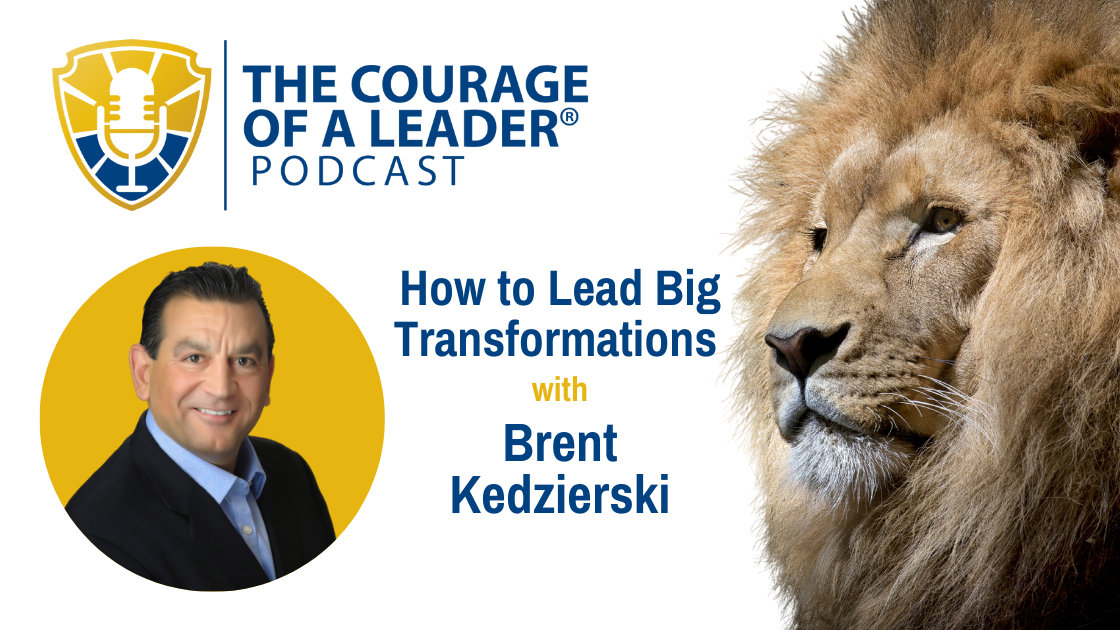
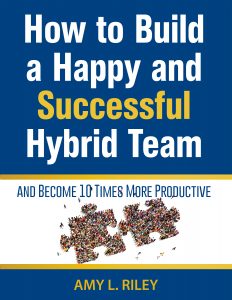
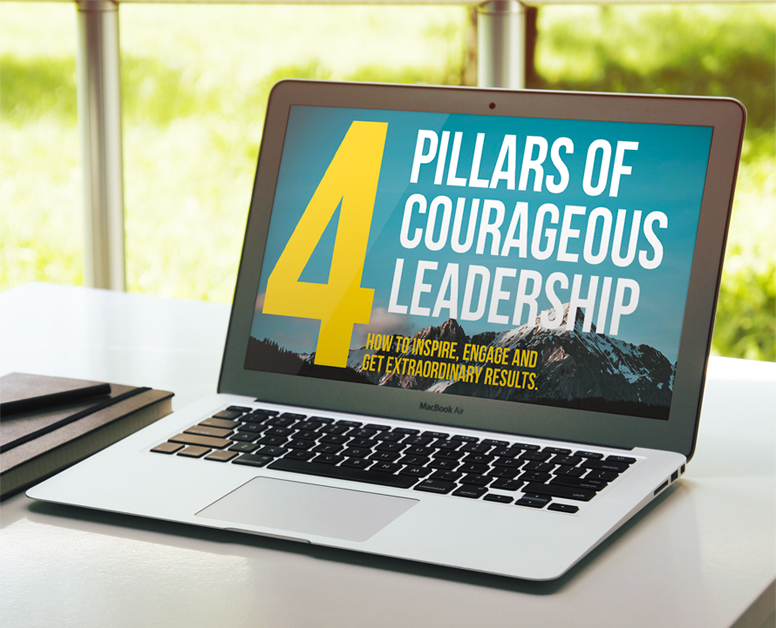 A Summary of The Courage of a Leader® 4 Pillars
A Summary of The Courage of a Leader® 4 Pillars